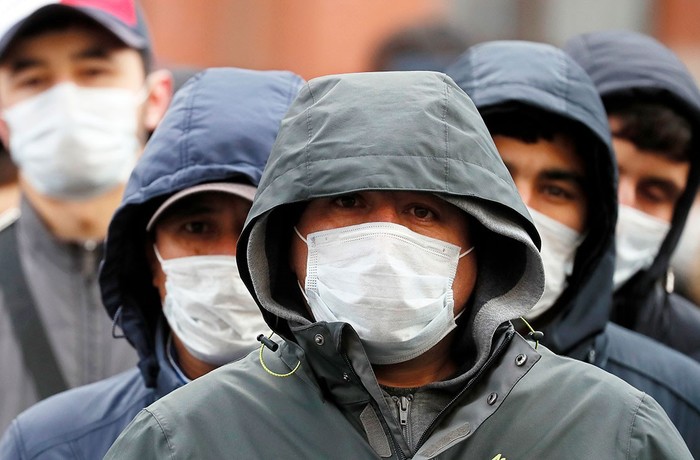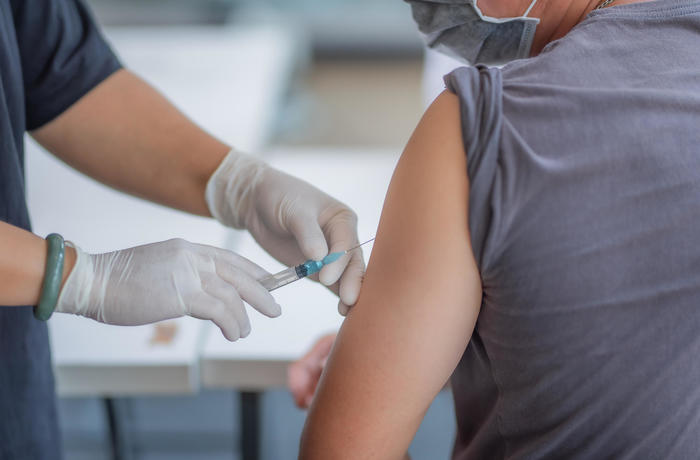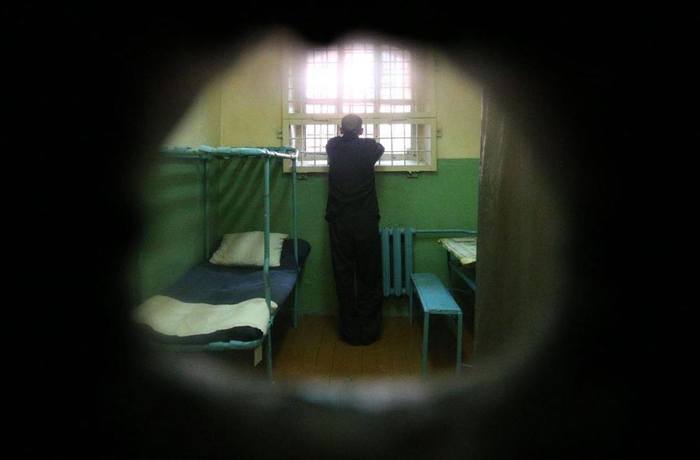At the end of 2020, 6.3 mln migrants lived in Russia, including those living here legally and illegally. Most migrants come to Russia in search of work.
To legally live and work in Russia as a foreigner, you must obtain a work or residence permit. The former lasts a year and the latter three, though a work permit is easier to get. Yet to apply for either permit a migrant must present a certain set of documents. Among them is one certifying that he or she does not have diseases that “present harm to others,” including HIV, leprosy, syphilis and tuberculosis. If the person decides to stay in Russia, every one or three years he must be tested again and present a new certificate.
In 2015, the government issued an order that those with spouses, children or parents with Russian citizenship did not have to present such a certificate; instead, they now have to present to the Russian consumer protection regulator a document confirming, say, a marriage. Sergei Sharaleev, an attorney and president of the fund ПОЗИТИВНАЯ ВОЛНА, underscored to us the importance of submitting such a document as soon as possible.
According to AIDS.CENTER consultant Vladislav Vishnevsky, the main challenge is that migrants themselves don’t always know these nuances. Internal Affairs Ministry officials, meanwhile, may demand a certificate that a migrant does not have HIV and take action against those who, despite having close family in Russia, failed to present one. In this case, it’s best to go to court. (Vishnevsky recommends consulting with an attorney before, however.)
Others who are HIV-positive face deportation. Medical institutions are supposed to provide the Russian consumer protection regulator with data about HIV cases if the testing is not done anonymously. Within a month the person will be declared “unwelcome” in Russia.
Where to go for help?
Noncommercial organizations take on most of the burden when it comes to supporting migrants with HIV. According to Shagaleev, about every fifth person who comes to ПОЗИТИВНАЯ ВОЛНА is a migrant. Most of the time, they need legal help. The fund tries to help migrants legally stay in Russia and get free antiretroviral treatment. It also works with those who wish to appeal a decision on their “unwelcome” status in the country.
According to HIV consultant Diana Alieva, even if a person had been receiving help from one organization or another in his home country, he or she often won’t know where to go for help in Russia. This is attributable to the fact that those organizations and their Russian counterparts often don’t work together. Alieva says that in Moscow things are complicated by a “fight for resources” and competition between various noncommercial organizations, with the migrants suffering as a result.
“Eternal self-isolation and quarantine”
Many female migrants are involved in sex work. This happens sometimes voluntarily and sometimes as a result of deception – for instance, when an employer offers legal work in Russia at first sight. However, due to the lack of official data it remains unknown what share of female migrants are involved in sex work.
The industry of sex services remains criminalized in Russia. Because of this, female migrants can end up in an even more vulnerable position. Besides a lack of condoms and lubricants, as well as the simplest HIV tests, these women face violence from clients. According to Alieva, this happens regularly. “There’ve been cases when women were threatened with a knife or pistol,” she said. Among all sex workers, it is often migrants who are targeted for robbery, as they are the least likely to go to the police. Transgender workers face misogyny and transphobia.
“The life of a migrant sex worker is eternal self-isolation and quarantine,” Alieva says. These women move around the city mostly by taxi, leave their homes only when necessary and talk mostly with each other. They lack legal support and safe spaces.
Male migrants, though less frequently involved in sex work, can get HIV while living in Russia (including because of their consumption of sex services). Having returned to his home country, a migrant, without knowing that he is HIV-positive, could pass on the infection to his family. In Tajikistan, the share of migrants among newly registered HIV cases rose by 8.7 pp in 2014-18 from 10.1% to 18.8%. Various programs have been launched to prevent the spreading of HIV as migrants make their way back and forth.
“The main task is to convince people to start treatment”
Diana recommends first taking an anonymous express test for HIV. If it comes back positive, women are sent to private laboratories for another test. After this, everything depends on the individual. Some are recommended to register at an AIDS center in their home country, others are sent to a friendly infection specialist, who will recommend a treatment. Usually, a first round of ARVs is prescribed, which a migrant purchases herself. The cost is on average about 2,000 rubles a month.
Shagaleev highlighted that only through noncommercial organizations is it possible to receive free antiretroviral therapy, but that in most cases the migrants must figure out treatment themselves. Some solutions are periodic trips to the home country to pick up medicine at a local AIDS center or having someone send medicine to Russia. But no matter how he or she chooses to treat themselves, “the main task is to convince people to start treatment,” says Alieva.
Ban on staying in Russia is discrimination
Besides Russia, HIV-positive foreigners are barred from staying in another 18 countries on the basis of their diagnosis. In another set of countries, restrictions on long-term residence for HIV-positive people (no longer than 90 days). A noteworthy case in this regard was that of Mikhail Novruk: he appealed to the European Court of Human Rights in 2011 after he, a Moldovan citizen who had lived in Russia for a long time, had been refused a visa despite having family in Russia. Citizens of Kazakhstan, Uzbekistan, Ukraine and Moldova joined the appeal. In 2016, the court found that Russia had violated the rights of and discriminated against HIV-positive foreigners with family in Russia.
In 2019, UNAIDS called on all countries to cancel restrictions on the mobility of HIV-positive people. Since 2015, four countries – Latvia, Belarus, Uzbekistan and South Korea – have repealed such restrictions. UNAIDS Executive Director Gunilla Carlsson has said that mobility restrictions based on HIV status violate human rights and are ineffective in containing the spread of HIV.
Translated by Keary Larussi




